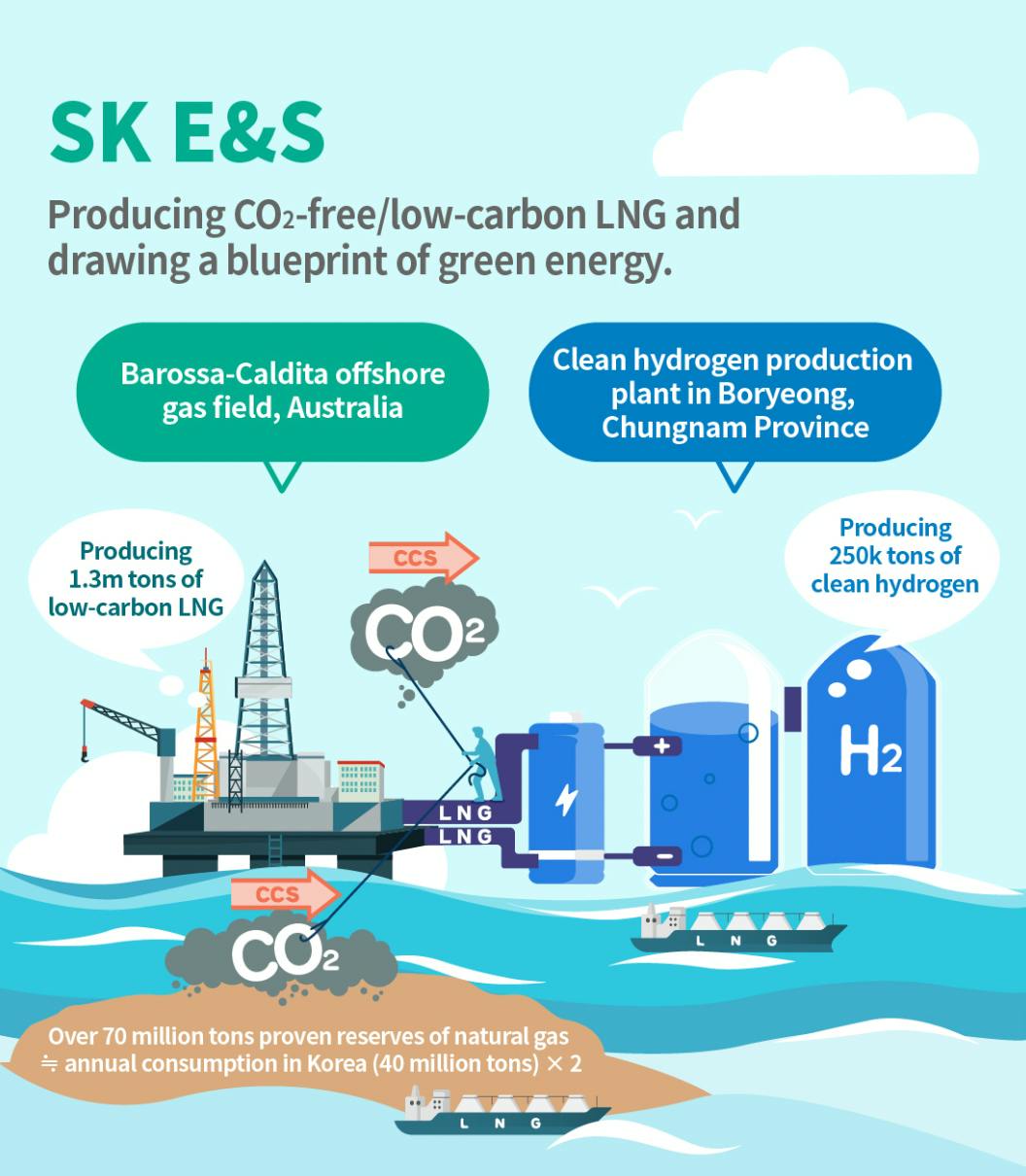The South Korean government has said it will start fining companies that make bogus sustainability claims.
To continue reading, subscribe to Eco‑Business.
There's something for everyone. We offer a range of subscription plans.
- Access our stories and receive our Insights Weekly newsletter with the free EB Member plan.
- Unlock unlimited access to our content and archive with EB Circle.
- Publish your content with EB Premium.
Under a draft new law, the country’s environment ministry has said it will issue penalties of up to KRW3 million (US$2,300) for companies that mislead the public about their environmental impact.
The news comes four months after the country’s largest oil and gas company SK E&S was forced to modify a marketing campaign that claimed the firm would produce “CO2-free” liquefied natural gas at a planned plant in northern Australia.

SK E&S’s claim to bring ‘carbon-free’ gas from Australia to Korea in a press release from 2021. Image: SK E&S
The company was taken to court by environmental campaign group Solutions by Our Climate (SFOC) in 2021, the first legal action taken against a company over its sustainability communications in the country. SK E&S has subsequently changed the language of its claim to “low-carbon”.
The draft law comes after a series of warnings issued by the environment ministry to energy and steel firms in South Korea. Firms were advised to use hard facts when communicating green claims, according to documents seen by Sungjoon Jin, a member of Korea’s national assembly.
Companies issued with guidance on greenwashing by the ministry include SK Energy, the country’s biggest oil company, Posco, a steel manufacturer, and Chevron and GS Group-owned oil refiner GS Caltex.
As the world’s seventh biggest carbon emitter, which is still heavily reliant on fossil fuels to power its economy, the claims made by South Korea’s powerful carbon-intensive companies matter.
The government is expected to release new guidelines on greenwashing in October, working with experts, civil society, and industry to advise firms on what they can and cannot say.
SFOC’s head of legal operations Jihyeon Ha said that the draft law shows that climate litigation plays a key role in strengthening regulation against greenwashing from polluting firms.
“RW3 million may not be a lot, but it’s a step in the right direction”, she said. However, Ha warned that there is a risk that corporations simply pay the fine while reaping the monetary and reputational benefits of greenwashing.
“The Ministry of Environment must now demonstrate it is serious about curbing greenwashing by enforcing the fine and further strengthening regulation against greenwashing,” she said.
The Korean government needs to take further steps to proactively monitor and regulate greenwashing, Ha said.
Regulators need to closely monitor greenwashing companies’ business plans and be ready to challenge companies even at the planning stage if the plans contradict what the companies are communicating, she said.
As more companies begin to use offsets to promote their products as “green” or “carbon neutral”, they should be obligated to display disclaimers around the limitations of offsets, she added.
There need to be specific guidelines or regulations around the need for companies to disclose specific amounts of emissions to back up any green claims in advertising, Ha said.
Currently, regulations to combat greenwashing are thin in Korea, as they are elsewhere around the region.
However, Australia’s competition watchdog said last year that it intends to clamp down on erroneous claims, while Singapore and Japan plan to introduce guidelines for firms to avoid greenwashing in environmental, social and governance statements.
Regulations are tougher in Europe, where France has banned fossil fuel advertising and prohibited use of the phrase “carbon neutral” without evidence to back it up.
The European Union is expected to ban unfactual green claims this year.










